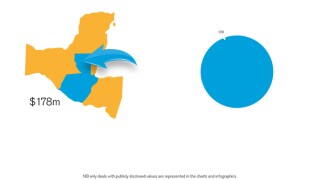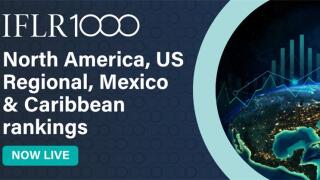Latin America and Caribbean
Future Abu Dhabi head Gonçalo Capela Godinho explains why Pérez-Llorca is exporting its Iberian expertise to Abu Dhabi
Award-winning finance lawyer Tatiana Guazzelli shares insights on fintech innovation, compliance, and long-term stability
New CARF rules increase compliance demands for crypto service providers, reshaping market transparency and strategy
Sustainability-linked and transition loans provide practical pathways for decarbonisation in emerging markets’ hard-to-abate sectors
New hires and promotions were made across finance, PE and M&A practices in London, Singapore, New York and Santiago
The firm has appointed dispute resolution partner Ian Mann to lead its new outfit in Dubai’s International Financial Centre
New hires and promotions were made across the PE, corporate, M&A, finance and capital markets practices in Frankfurt, Munich, London, New York and São Paulo
Why sponsors are turning to holdco PIK to boost leverage and preserve cash amid Latin America’s volatility
Sponsored
Sponsored
-
Sponsored by Cescon Barrieu Flesch & Barreto AdvogadosThe auction of the Norte Sul railway (FNS), on March 28, marks the end of a long hiatus for railway concessions. The last one had taken place in 2007, more than 10 years ago.
-
Sponsored by Brigard UrrutiaLaw 1870 of 2017, the Colombian Financial Conglomerates Law entered into force on February 6 2019. The Colombian Superintendence of Finance (SFC) has begun the process of supervising 13 financial conglomerates in the country, five of which are local and eight foreign. The SFC will supervise: Sura – Bancolombia Group, Aval Group, Bolívar financial conglomerate, BBVA Colombia, Fundación Social, Coomeva, Scotiabank Colombia, Itaú Colombia, BNP Paribas Colombia, BTG Pactual Colombia, Credicorp Capital Colombia, GNB Sudameris Colombia and Old Mutual Colombia.
-






















